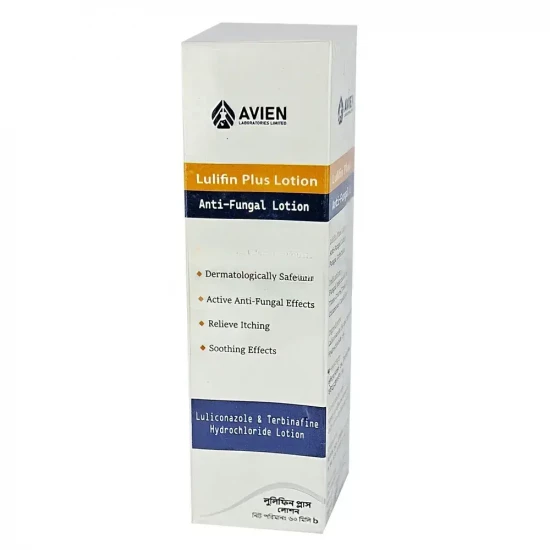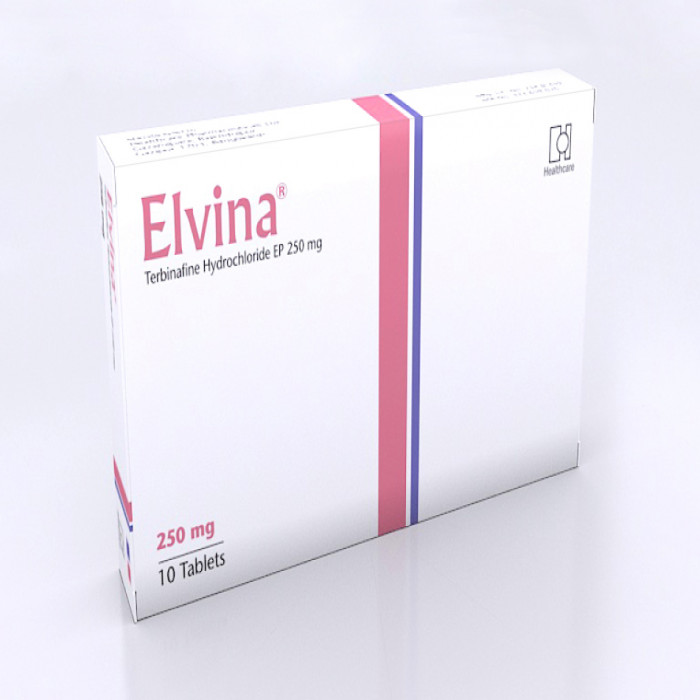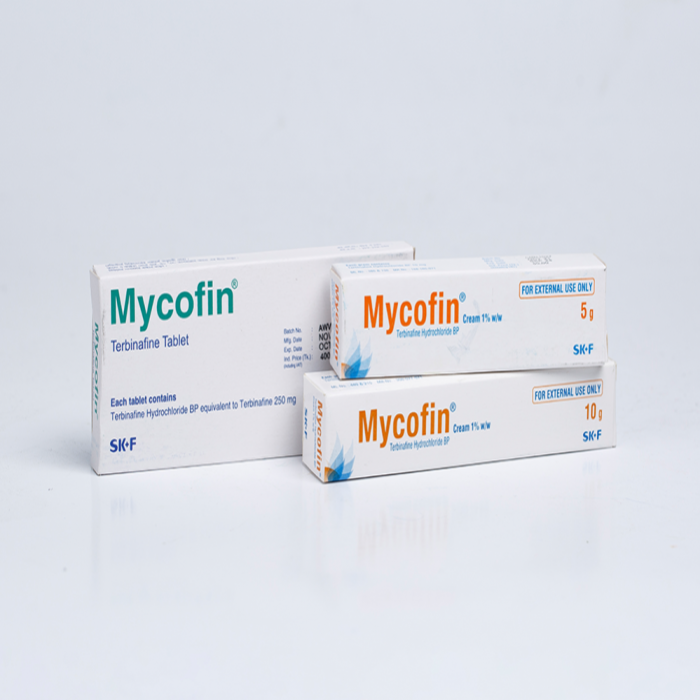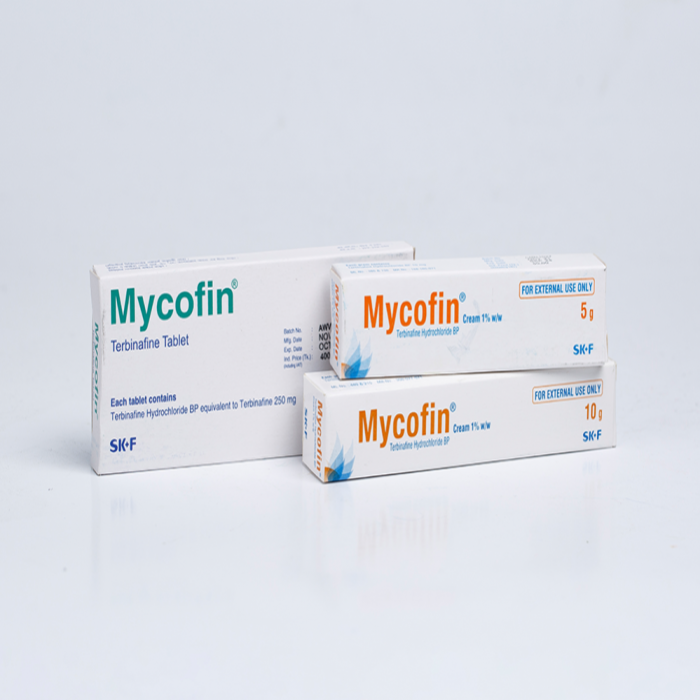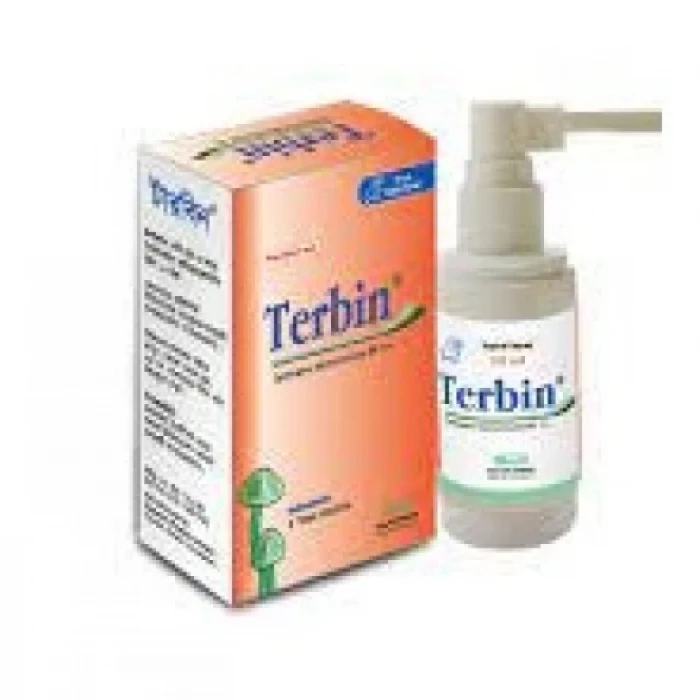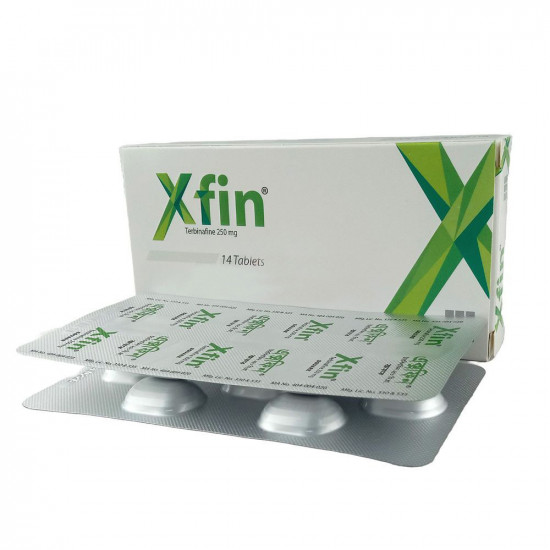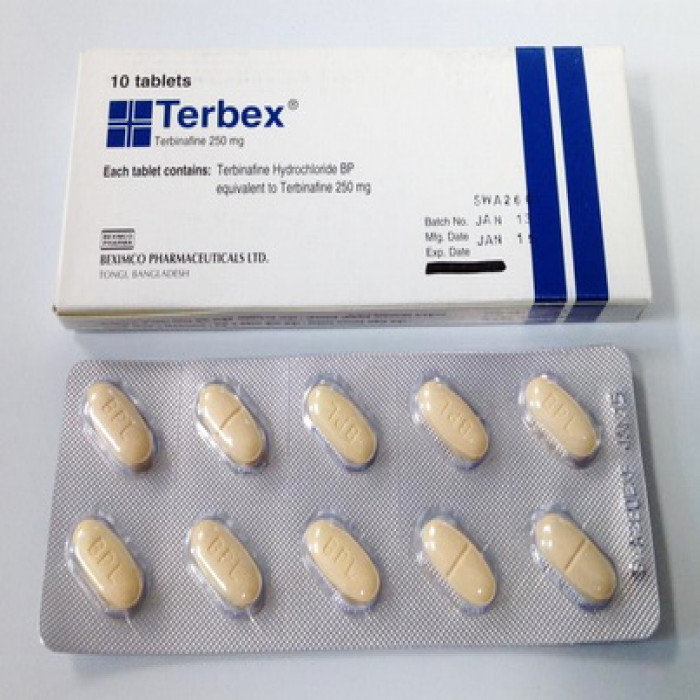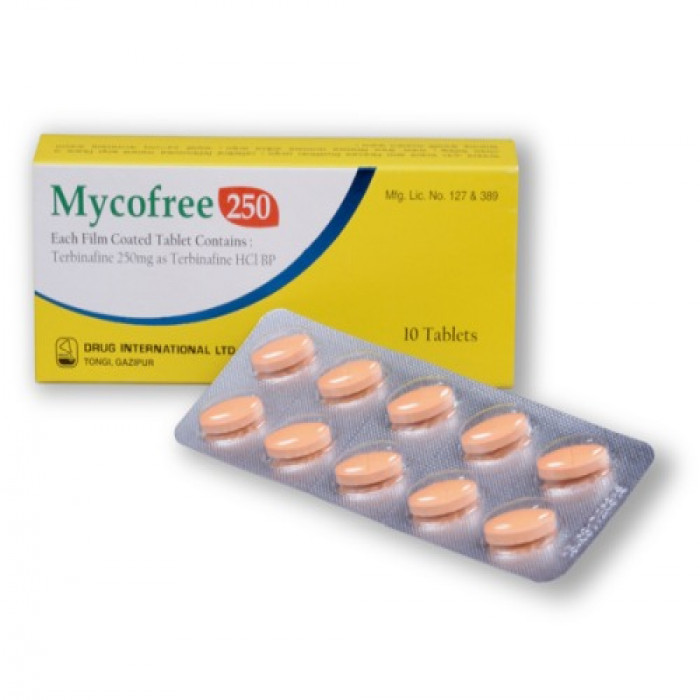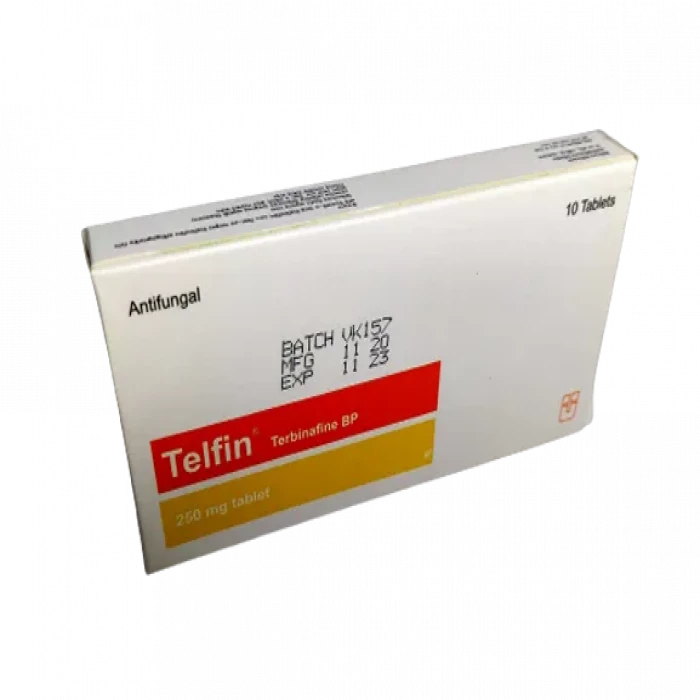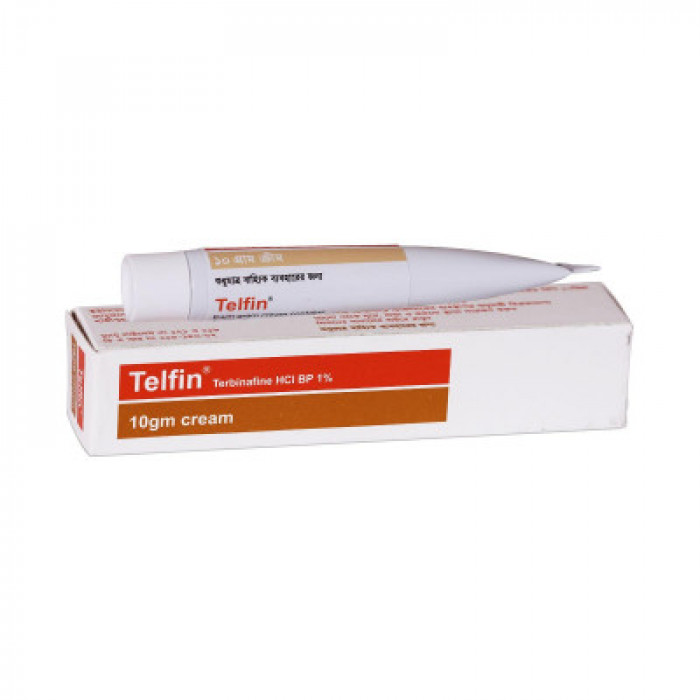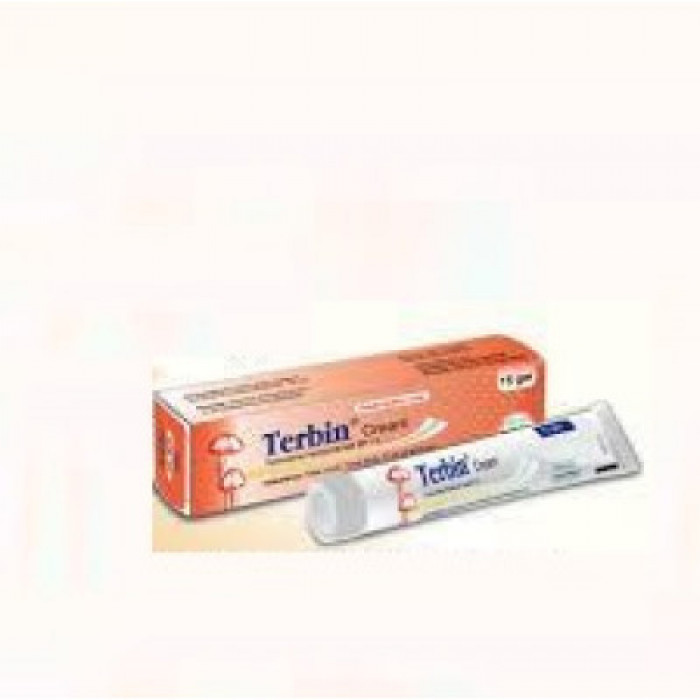
✔ 100% Authentic Product
👁️ Currently Viewing 7965
Terbin 1% Cream
Terbin 1% Cream is an antifungal medicine used to treat various fungal skin infections, such as athlete's foot, jock itch, and ringworm. It works by damaging the cell membrane of the fungi, making them weaker and preventing the spread of the infection.
Discount
Price: ৳ 86
MRP:
৳
90
5%
Off

100% Genuine Products, Guaranteed

Safe & Secure Payments, Always

Fast, Secure & Efficient Delivery

Proper Packaging
 Cash on Delivery - All over Bangladesh
Cash on Delivery - All over Bangladesh Regular Delivery - 12-24 Hours, Dhaka City* Charge Tk.39-59
Regular Delivery - 12-24 Hours, Dhaka City* Charge Tk.39-59 Regular Delivery - 24-48 Hours, Other Cities* Charge Tk.99-110
Regular Delivery - 24-48 Hours, Other Cities* Charge Tk.99-110
🌙 রমযান অফার 🌙
 ফ্রি ডেলিভারিঃ - ৭৯৯ টাকা+ অর্ডারে, ঢাকা
শহরে
ফ্রি ডেলিভারিঃ - ৭৯৯ টাকা+ অর্ডারে, ঢাকা
শহরে ফ্রি ডেলিভারিঃ - ২৭৯৯ টাকা+ অর্ডারে, ঢাকার
বাহিরে
ফ্রি ডেলিভারিঃ - ২৭৯৯ টাকা+ অর্ডারে, ঢাকার
বাহিরে
📲 মোবাইল অ্যাপ অর্ডারে সাশ্রয় বেশী
-
Google Play Store থেকে ডাউনলোড
-
Apple Store থেকে ডাউনলোড
100% Genuine Products, Guaranteed
Safe & Secure Payments, Always
Fast, Secure & Efficient Delivery
Proper Packaging
 Cash on Delivery - All over Bangladesh
Cash on Delivery - All over Bangladesh Regular Delivery - 12-24 Hours, Dhaka City* Charge Tk.39-59
Regular Delivery - 12-24 Hours, Dhaka City* Charge Tk.39-59 Regular Delivery - 24-48 Hours, Other Cities* Charge Tk.99-110
Regular Delivery - 24-48 Hours, Other Cities* Charge Tk.99-110 ফ্রি ডেলিভারিঃ - ৭৯৯ টাকা+ অর্ডারে, ঢাকা
শহরে
ফ্রি ডেলিভারিঃ - ৭৯৯ টাকা+ অর্ডারে, ঢাকা
শহরে ফ্রি ডেলিভারিঃ - ২৭৯৯ টাকা+ অর্ডারে, ঢাকার
বাহিরে
ফ্রি ডেলিভারিঃ - ২৭৯৯ টাকা+ অর্ডারে, ঢাকার
বাহিরে- Google Play Store থেকে ডাউনলোড
- Apple Store থেকে ডাউনলোড
🌙 রমযান অফার 🌙
📲 মোবাইল অ্যাপ অর্ডারে সাশ্রয় বেশী
✅ Description:
Terbinafine belongs to the antifungal class of drugs. It is used in tablet form to treat fungal infections of toenails and fingernails and as oral granules to treat scalp ringworm (tinea capitis). Fungal nail infections (onychomycosis) cause nails to become thick, discolored, and more likely to break. Tinea capitis is a contagious fungal infection of the scalp, leading to bald, itchy, and scaly patches in a ring shape.
Terbinafine damages fungal cell membranes, crucial for their survival, by preventing the entry of unwanted substances and leakage of cell contents, ultimately killing the fungi and clearing the infection.
To use Terbinafine, follow your doctor's prescription. Side effects may include diarrhea, stomach pain, headache, or changes in taste, but most of these resolve over time. If side effects persist or worsen, consult your doctor.
If allergic to Terbinafine, avoid using it. Consult a doctor if pregnant or nursing. Limit sun exposure as Terbinafine may increase sensitivity to sunlight. Use protective clothing and sunscreen outdoors. In case of depressive symptoms such as feeling worthless or sad, mood changes, or sleep pattern alterations, inform your doctor immediately.
Safety Advices

Alcohol
No interaction found/established

Pregnancy
SAFE IF PRESCRIBED
Terbin 1% Cream is not recommended for use during pregnancy unless necessary. Hence, consult your doctor if you are pregnant.

Breastfeeding
SAFE IF PRESCRIBED
Terbin 1% Cream is not recommended for use while breastfeeding as it passes into breast milk. Hence, consult your doctor if you are breastfeeding.

Driving
CAUTION
Terbin 1% Cream is unlikely to affect your ability for driving or handling any heavy tools or machines.

Kidney
CONSULT YOUR DOCTOR
Kidney functions are generally not known to be affected by terbinafine. However, in cases of significant renal insufficiency (GFR <50 mL/minute), dose reduction is recommended.

Liver
CONSULT YOUR DOCTOR
People suffering from Liver problems are not advised to take this medicine.
✔️ Uses of
- Treats fungal skin infections
✔️ How does Terbin 1% Cream work?
Terbinafine destroys fungal cell membranes that are essential for their survival as they prevent the entry of unwanted substances into the cells and stop the leakage of cell contents. Thereby, kills fungi and clears infection.
✔️ Side Effects of Terbin 1% Cream
- Skin itching
- Skin peeling
- Change in skin color
- Skin redness at the site of application
- Dry skin
- Burning sensation at the application site
✔️ Quick Suggestions:
- Terbinafine helps treat fungal infections of the skin and nails.
- Do not skip any doses and finish the full course of treatment even if you feel better.
- Treatment may be needed for 2 to 6 weeks for skin infections and 6 weeks to 6 months for nail infections.
- It can make your skin more sensitive to the sun. Use broad-spectrum sunscreen and protective clothing when outdoors.
- Your doctor may monitor your liver function regularly during treatment. Inform your doctor if you notice yellowing of eyes or skin, dark urine, or stomach pain.
- Inform your doctor if you are pregnant, planning to conceive or breastfeeding.
✔️ Indication of Terbin 1% Cream
Terbinafine is an antifungal medication. It kills and stops the growth of the fungi by destroying their cell membrane, thereby treating your skin infection.
✔️ Pharmacology
Terbinafine is an Allylamine antifungal that inhibits the biosynthesis of Ergosterol, a crucial component of the fungal cell membrane, by blocking the Squalene Epoxidase enzyme. This leads to increased membrane permeability due to the accumulation of high concentrations of Squalene, resulting in fungal cell death primarily because of membrane disruption rather than Ergosterol deficiency. Depending on the drug concentration and the fungal species tested in vitro, Terbinafine hydrochloride may exhibit fungicidal activity. However, the clinical significance of in vitro data is uncertain. Terbinafine has been shown to be active against most strains of Trichophyton mentagrophytes and Trichophyton rubrum, both in vitro and in clinical infections.
✔️ Dosage & Administration of Terbin 1% Cream
Terbinafine cream can be applied once or twice daily. Before application, cleanse and dry the affected areas thoroughly. Apply a thin layer of the cream to the affected skin and surrounding area and lightly rub it in. For intertriginous infections (submammary, interdigital, intergluteal, inguinal), the application may be covered with a gauze strip, especially at night. The typical durations of treatment for various conditions are as follows:
- Tinea corporis, cruris: 1 to 2 weeks
- Tinea pedis: 1 week
- Cutaneous candidiasis: 2 weeks
- Pityriasis Versicolor: 2 weeks
Relief of clinical symptoms usually occurs within a few days. It is crucial to use the cream regularly and complete the treatment to avoid recurrence. If there are no signs of improvement after two weeks, the diagnosis should be verified.
✔️ Interaction
Terbinafine may interact with various drugs, including those used to treat stomach ulcers, antibiotics, antifungal medications, high blood pressure medications, antidepressants, opioid painkillers, blood thinners, heart-related medicines, and immunosuppressants. It may also interact with caffeine-containing foods and drinks, such as chocolate, tea, coffee, cola, and energy drinks, leading to increased adverse effects of caffeine.
For individuals with certain health conditions like lupus, weakened immune system, and kidney or liver problems, it is essential to inform their doctor before taking Terbinafine to ensure safe and appropriate use.
✔️ Contraindications
Terbinafine Cream is contraindicated in individuals hypersensitive to terbinafine.
✔️ Pregnancy & Lactation
Animal studies suggest no adverse effects on the fetus and fertility. However, there is no clinical experience with terbinafine in pregnant women. Unless the potential benefits outweigh any potential risks, terbinafine should not be administered during pregnancy. Terbinafine is excreted in breast milk, so mothers should not use terbinafine cream while breastfeeding.
✔️ Precautions & Warnings
- Avoid taking Terbinafine if you are allergic to terbinafine.
- If you are pregnant or a nursing mother, consult a doctor before using Terbinafine.
- Limit sun exposure while using Terbinafine, as it may make the skin more sensitive to sunlight. Wear protective clothing and use sunscreen to prevent sunburn.
- Inform your doctor if you have lupus, a weakened immune system, or kidney or liver problems before taking Terbinafine.
- If you experience depressive symptoms, such as feeling worthless or sad, loss of interest or energy in daily activities, mood changes, restlessness, or changes in sleep patterns, inform your doctor immediately.
✔️ Storage Conditions
Protect from light and moisture by storing below 30°C. Keep the medicine out of children's reach.
⚠️Disclaimer:
At ePharma, we’re committed to providing accurate and accessible health information. However, all content is intended for informational purposes only and should not replace medical advice from a qualified physician. Please consult your healthcare provider for personalized guidance. We aim to support, not substitute, the doctor-patient relationship.




